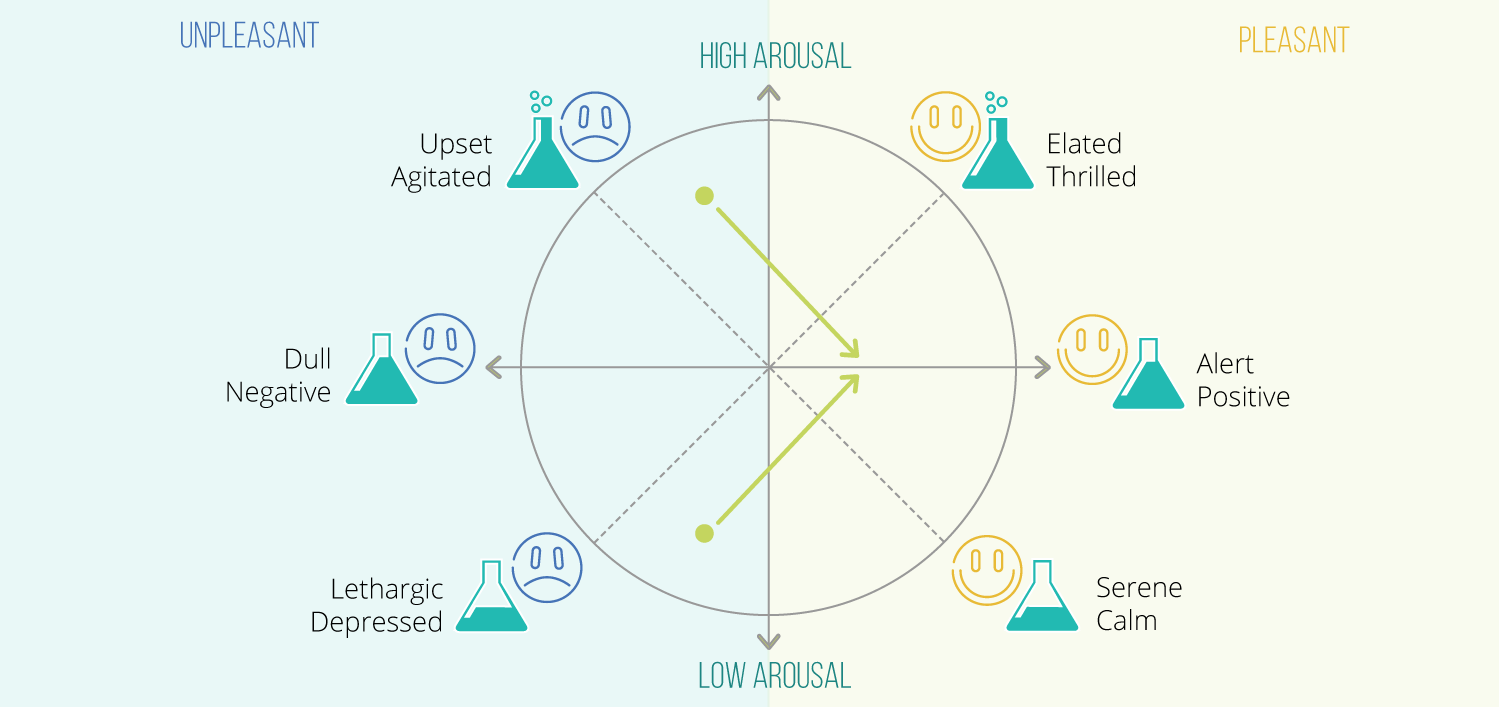Does sleep help you to remember or to forget?

When I was in college, my classmates often pulled “all-nighters” in preparation for the exams. Yet, it never worked for me. I found that if I didn’t get enough sleep during my exam preparation, I had a very hard time retaining the information that I tried to remember. If I did get enough sleep, in addition to feeling better overall, both my recollection and understanding of the material had improved dramatically.
Turns out, my experience is not unique – in fact, sleep plays an essential role in memory creation, retention, and recollection. Here is how it works.
1. Sleep before learning – freeing up the storage capacity
When we first acquire any new fact-based information, it is temporarily stored in the region of the brain called the hippocampus. The problem is that the hippocampus has a limited storage capacity – once you reach the limit, you cannot fit anything else in there. It becomes particularly crammed when you are trying to remember a lot of information in a short period of time (like you do before the exam, for example, or during an information-dense workday). When you go to sleep at the end of the day, those memories get moved from the hippocampus to a long-term brain storage facility called the cortex. In his studies, Matthew Walker, PhD, showed that during the second, lighter stage of NREM (deep sleep), short, powerful bursts of electrical activity called sleep spindles “kept weaving a path back and forth between the hippocampus, with its short-term, limited storage space, and far larger, long-term storage site of the cortex. […] In doing so, sleep had delightfully cleared out the hippocampus, replenishing this short-term information repository with plenty of free space.” (1)
This study also highlighted two important factors:
A. Skipping the deep sleep stage interrupts this mechanism. The concentration of the sleep spindles is particularly rich during late-morning hours, so if you sleep six hours or less, your brain will not have time to clear your memory’s short-term storage capacity, which impairs your ability to learn new things.
B. Adults between 60 and 80 years old are unable to generate the same degree of sleep spindles as younger adults, experiencing an average of 40% deficit, which affects their learning capacity. This means that improving sleep quality and quantity is even more important for older adults.
2. Sleep after learning – immunity against forgetting
Whenever you try to remember something, you retrieve a memory from one of the two places – the hippocampus or cortex. If you haven’t slept after forming that memory (for example, if you are coming out of the mall and trying to remember where you parked your car), the memory will be pulled from the hippocampus (short-term storage facility). Those memories are much more fleeting and easier to forget. But if you have eight hours of sleep after forming a memory, it will be retrieved from the cortex, where your memories can live safely much longer. Every night, this memory transference takes place during NREM (deep sleep). “By transferring memories of yesterday from the short-term repository of the hippocampus to the long-term home within the cortex, you awake with both yesterday’s experiences safely filed away and having regained your short-term storage capacity for new learning throughout the following day.” (1)
Another fascinating thing is that after a night of plentiful sleep, it is easier for you to recover memories that you could not retrieve before sleep. During sleep, your brain files those memories away, modifying and clarifying the informational structure of your brain. This makes it easier for you to pull up a necessary file. This is why it is so important to get a good night’s sleep after studying for an exam so that your memories both get filed away and strengthened, and become clarified and linked to other relevant information during sleep.
3. Sleep to forget – retaining what’s useful and important
Our ability to forget is just as important as our ability to remember. We do not need to remember every waking moment of every day, and it can serve us better if we release some painful, disturbing memories. In his research, Matthew Walker showed that during NREM sleep, the brain sorts through all the incoming information and decides which memories to keep and which to let go of. What is particularly interesting is that his experiments show that you can prime your brain for remembering or forgetting specific information. “Sleep is able to offer a far more discerning hand in memory improvement: one that preferentially picks and chooses what information is, and is not, ultimately strengthened. Sleep accomplishes this by using meaningful tags that have been hung onto those memories during initial learning, or potentially identified during sleep itself.” If you make a mental note to yourself about a specific piece of information (“I need to remember this”), you will be more likely to remember it later.
In yoga tradition, we talk about memories as well. Patanjali’s yoga sutra defines memory as “recollection of experienced objects.” (Sutra 1.11) Generally speaking, in our yoga practice we are interested in memory strengthening and memory purification. There are specific yogic techniques that help us accomplish those tasks, but even without resorting to those practices, memory strengthening and memory purification happen naturally every night when we sleep. Our goal, then, is not to interfere with those processes and to support them by getting enough sleep every night (eight and a half hours is ideal) and trying to improve the quality of our sleep.
Sleep also plays an important role in strengthening what we call “muscle memory”—our ability to perform skilled physical tasks with ease. This comes into play when we try to learn how to do specific yoga poses or just generally improve our body-mind coordination.

Sleep is just as important for improving our motor memory, leading to increased accuracy and efficient automaticity of a practiced routine.
References
1. Why do we sleep: Unlocking the Power of Sleep and Dreams by Matthew Walker









Have there been any studies done to see if practicing yoga nidra between studying sessions has a similar effect on memory?
Hi Rebeca! I am not aware of any studies like that, but would be very curious!
Any suggestions for someone who suffers from insomnia brought on by pre-exam nerves. It’s one thing to go to bed with the intention of getting a full 8 1/2 hours sleep, but frustrating when the mind/body doesn’t obey!!
This is a great article. I’m amazed at how well you can explain rather complex things!! I teach a over 50’s yoga class. What yoga is good for memory loss? Can you do a sequence for memory help? Just curious…I would love to see more yoga sequences for seniors on this blog-there is such a demand! I’m viniyoga trained and have been teaching over 50’s now for almost twelve years. Thanks again for such an awesome website-it’s the only one I use for yoga classes!!